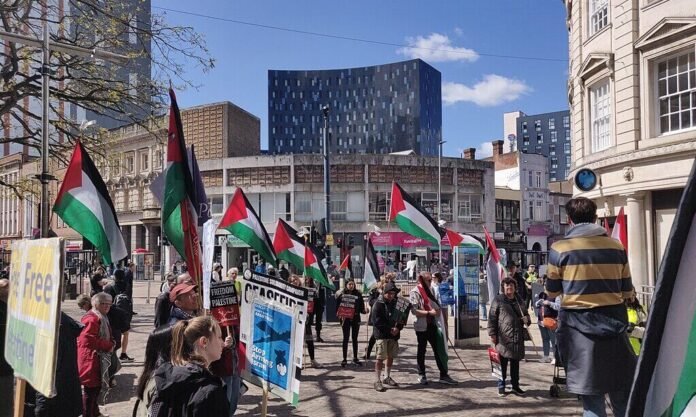MPs back terror law to outlaw Palestine Action; Supporters may face up to 14 years in prison
MPs have voted overwhelmingly to proscribe Palestine Action as a terrorist organisation, setting the stage for one of the UK’s most contentious clampdowns on protest in recent years.
The motion passed late Tuesday by 385 votes to 26 in the House of Commons, with the proscription order now expected to be signed by Home Secretary Yvette Cooper. Once enacted later this week, the move will make supporting or associating with the direct-action group a criminal offence punishable by up to 14 years in prison.
The decision amends the Terrorism Act 2000 and brings Palestine Action—known for its aggressive protest tactics against UK-based arms companies—into the same legal category as white supremacist militias and jihadist terror cells.
A High Court hearing has been scheduled for Friday in London to assess whether the ban can be temporarily blocked while a full legal challenge proceeds. The group has been granted an emergency hearing amid growing concern over the government’s definition of “terrorism”.
Palestine Action responded furiously, accusing the government of “bundling our civil disobedience protest group in with two violent, neo-Nazi militias”—a reference to the Maniacs Murder Cult and Russian Imperial Movement, which were also proscribed under the same order.
“We’re confident this unlawful order will be overturned,” the group declared in a statement, adding that many MPs had privately admitted they felt they had no real option to vote against the government without appearing to endorse violent extremists.
Palestine Action’s most recent action—spraying red paint over military aircraft at RAF Brize Norton—triggered fierce backlash. Prime Minister Sir Keir Starmer branded the stunt “disgraceful”, while the Home Office concluded the group met the legal definition of terrorism: using or threatening serious violence or damage to influence government policy or intimidate the public for political or ideological purposes.
Security Minister Dan Jarvis defended the move in Parliament, warning that the group’s “atrocious acts” had escalated in both “frequency and severity”. He listed recent targets including financial institutions, charities, universities and government buildings.
Embed from Getty Images“They may claim to be activists, but their tactics are increasingly violent,” Jarvis told MPs. “The attention they’ve received should not be confused with legitimacy.”
Four people were arrested outside Westminster as the vote took place, during a protest organised by Palestine Action. One man blocked the gates of Downing Street with a mobility scooter, while a woman tried to chain herself to a parliamentary entrance. Police said all arrests were for breaching Public Order Act restrictions.
While the government secured overwhelming support, dissent was audible across the Labour benches. Ten Labour MPs opposed the order, including Clive Lewis and Richard Burgon. Lewis warned of a “long history” of direct action in British democracy and argued that “this is still protest—not terrorism.”
Burgon said the legislation risked “criminalising thousands of volunteers and supporters,” noting that Palestine Action’s network includes students, NHS workers and pensioners.
The order now heads to the House of Lords on Thursday, where it is expected to pass.
Human Rights Watch UK director Yasmine Ahmed denounced the decision as “a grave abuse of state power” and “a terrifying escalation” in government efforts to criminalise protest. “We expect this from authoritarian regimes like Russia or China—not a democracy like the UK,” she said.
Palestine Action has focused its campaign on arms companies, particularly those linked to the Israeli military. The group intensified its actions following Israel’s assault on Gaza after Hamas’s 7 October 2023 attacks. According to Gaza’s Hamas-run health ministry, more than 56,500 Palestinians have been killed in the conflict.
